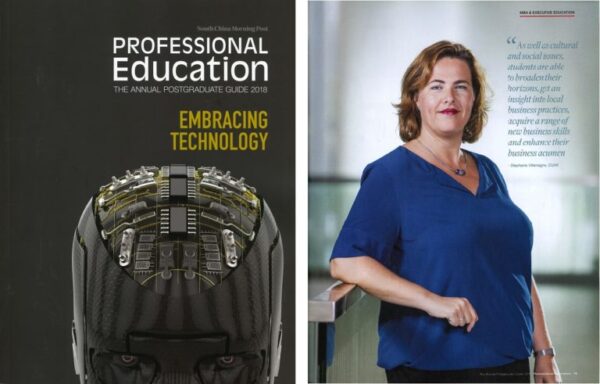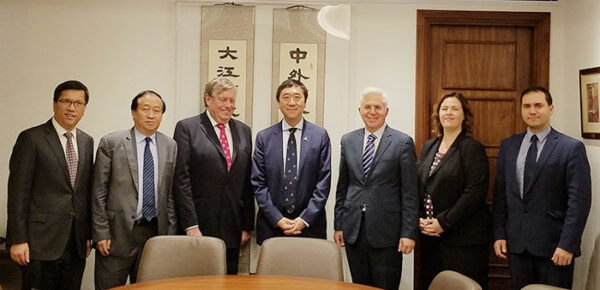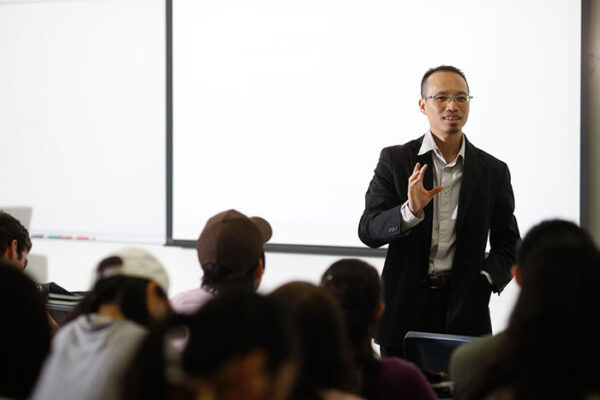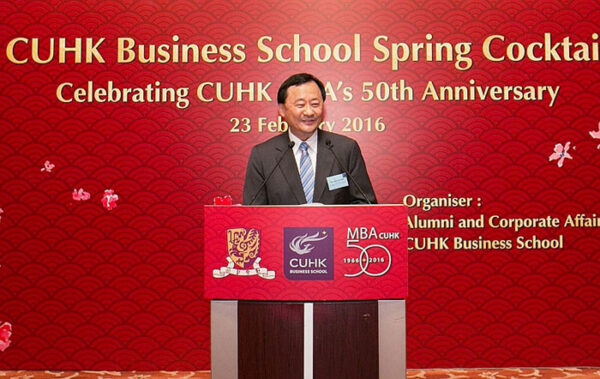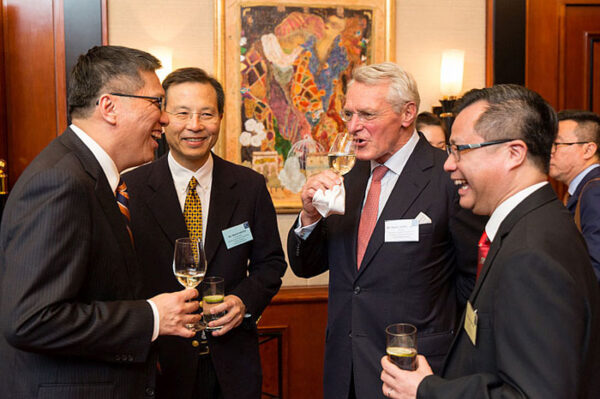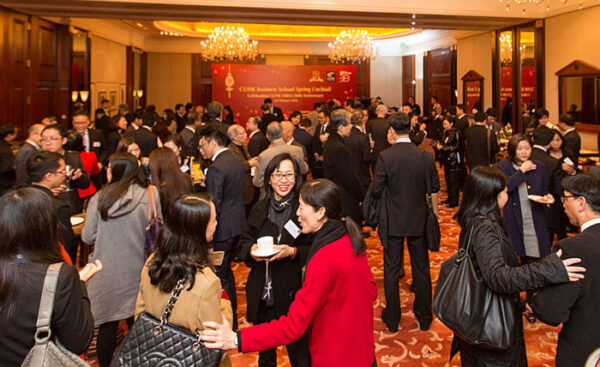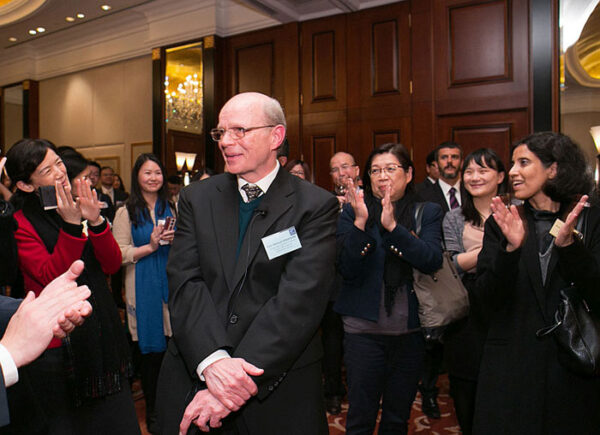Media Coverage by eFinancialCareers:
“Banking is a competitive industry which attracts very talented people, but it’s lacking in leadership skills because its leaders are often hyper-focused on their work and don’t spend the time and effort needed to become more self-aware,” says Dr Noorein Inamdar, an Associate Professor at the Chinese University of Hong Kong.
Inamdar, who teaches the leadership development course in CUHK’s MBA programme, says banking is facing a “leadership crisis”. And she’s determined to get that message across to her students, many of whom are in management roles in the finance sector or aspire to be in the future.
She begins the course by quoting some “shocking statistics” from a 2016 Harvard Business Review article: 82% of people don’t trust their boss and more than 50% of employees quit their jobs because of their managers.
“There’s a global shortage of competent leadership, including in the banking sector. I make it very clear from the start that MBA students need to take leadership development seriously if they want to progress in their careers,” says Inamdar.
She then does some leadership myth-busting. “Some students think leadership ability is set in stone and consists of a pre-defined set of skills, but I tell them there’s no one-size-fits-all approach. Leadership is about matching style with context, while also being authentic to yourself – it’s a personal journey. Many in the class have an ‘aha moment’ when they realise this.”
One of the first steps to developing as a leader is becoming more “self-aware”, says Inamdar. “This means having an honest understanding of your own values, motivations, strengths and weaknesses – and how they come together and affect others.”
Self-awareness is not woolly management-speak, warns Inamdar, it contributes to the bottom line by making leaders and their employees perform better on the job. “And from my experience and research on leadership, the more self-aware leaders tend to make the more ethical business decisions.”
Crucially, self-awareness gives you the ability to adjust your leadership and communication style to suit individual members of your team.
“This might seem straightforward, but I’ve worked with leaders in the banking sector – and most of them have no idea about adapting to their employees’ needs.”
Inamdar says banking tends to attract “very bright people, but not necessarily very self-aware people”.
“It’s the nature of the sector that young bankers are thrust into high-pressure jobs, often progress very rapidly, and aren’t allowed to develop their emotional intelligence skills,” she explains. “Most remain in survival mode throughout their careers – they don’t have enough time to become more self-aware leaders.”
The leadership development course in the CUHK MBA is particularly useful for students with a banking or finance background because it lets them “step back and assess their leadership abilities in a way they could never do at work,” says Inamdar.
To bring home the importance of self-awareness, Inamdar makes her MBA students take leadership development assessments, which allow them to learn more about themselves in areas such as self-confidence, cognitive thinking, communication style, and working in teams.
The results vary: some student don’t take the assessments too seriously; while others question their validity; some “can’t face the truth about themselves”; while others recognise their own weaknesses but are hesitant to work on them.
“But around 10% to 20% really get it – they know that the results can help them improve as leaders and they’re prepared to make an effort to change things about themselves. They don’t make excuses and see the assessments as valuable information to become better leaders in the future,” says Inamdar.
Each student also takes part in a peer-to-peer exercise, the Johari Window, in which they see a list of adjectives and choose the ones they think best match their own personality. Another student then picks words from the same list to describe their classmate.
“It’s a great tool to build self-awareness as it highlights any difference between what you think about your personality and how others perceive you. It can show you your leadership blind spots”
Ultimately, however, Inamdar says her CUHK MBA students like to “see results on the job when they become more self-aware”.
“I’ve already experienced examples of this within my class. A senior banker in Hong Kong perceived herself to be really a strong leader, but actually her employees were walking all over her – she was staying late to do their work,” says Inamdar. “She’s now in the process of changing her leadership style.”
Another manager and MBA student became aware that he wasn’t networking enough within his bank.
“He’s now gone from being a lone wolf to being far more collegiate. He’s learnt that building ‘social capital’ – even if that’s just bringing coffee to a colleague or solving a problem for them – will get you further in your career. In the long run better networks will get you a better job, and your work can be far more meaningful and enjoyable.”
Above all, Inamdar says banking professionals learn to be more adaptable and flexible leaders in the CUHK MBA programme.
“One student had been with his bank for 10 years and he wished he’d always known about adjusting leadership style based on the type of employees you have,” she says.
“His previous attitude was ‘I’m the boss, so people must adapt to me’. Now, because of the MBA leadership development course, he’s realising that being humble by adjusting his leadership style to the capabilities of his employees will make him and his team more productive. That’s an example everyone in banking could aim to follow.”
Media: eFinancialCareers
Section: News
Date published: February 17, 2017
